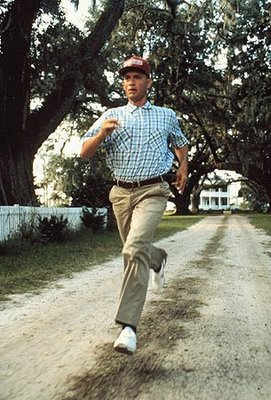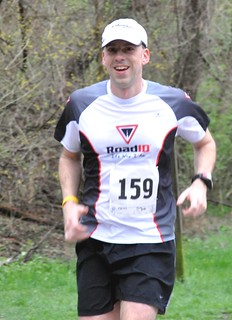For almost a year now I have been experimenting with different sensors, devices, and tests. It started with just a paramedic's curiosity and has led down different paths that have really stimulated my intellectual core.
I have used/tried/checked out devices and apps from these sites:
- http://www.fitbit.com/
- http://www.insidetracker.com/
- http://www.polarusa.com/us-en
- http://www.tactiosoft.com/en/products/
- http://www.azumio.com/
- http://www.mcmillanrunning.com/calculator
- http://www.bodymedia.com/
- http://www.myzeo.com/
- http://www.garmin.com/
- http://www.myfitnesspal.com/
- http://digifit.com/
- http://nikeplus.nike.com/plus/
- http://www.strava.com/
- http://www.mapmyfitness.com/
- http://www.microsoft.com/en-us/healthvault/
- http://pearsports.com/
Out of these I have come to favor a few of them more than others. The major criteria that I use is the service (and they are all services) needs to give ME information in a way that helps me to make better decisions. If it does not do that, I don't have the time or patience for it and that is why some of these are no longer on my list of 'go to' apps.
FitBit has been the most utilitarian of all these systems from my perspective (community, customer service, and the apps). Because I have a FitBit tracker and the Aria wi-fi scale, I know that in the last 10 months I have:
- Walked and run 2.1 million steps or more than 1,200 miles
- Climbed almost 7,000 floors or 70,000 feet (more than two Mount Everest climbs
- Lost more than 45 pounds (with many more gained and lost again!)
For managing fitness there are different or additional considerations. Weight loss and aerobic training are really the result of heart rates and foods eaten. These two things are the most critical aspects of your body to be monitored, measured, and managed. Nothing else is as important so you should focus your first efforts here!
Before I upgraded to a Garmin Forerunner® 910XT, heart rate monitor, and foot pod I relied on iPhone based apps such as MayMyRun, DigiFit, and a few others that I tried along the way. If you are looking for an entry level app to get started with, I recommend you simply get a Polar Heart Rate monitor and pair it with the DigiFit app. With DigFit you can use their default heart rate zones and just get started with monitoring your heart rates. If you want to learn about the techniques, you should also pick up the book Heart Rate Training to get started.
I've taken this to the next level by doing treadmill testing with exercise physiologist Ken Nicodemus of FitStopLab. This initial test established my baseline and provided me with valuable information about 'how' I should approach my training and what my expectations should be for my body. This was really cool and invaluable! Look for another blog post just on this experience and what it has done for me.
I also came across the InsideTracker company and their services. For this one you first select and purchase your plan online, then go to a LabCorp facility for testing, and a couple days later you will get an email notifying you that your results are in. I will also write another blog post on this experience but in the meantime I have arranged for you to get a 10% discount if you use the promo code: RUNMED12012 at checkout.
What apps or devices have you tried? Do you have a growing collection of things that you've tried but no longer use?
Happy New Year!























You make some good points but there are some other considerations I'd like to propose.
On one side are the folks more interested in having a good time while doing some running (without a specific objective or goal) for whom a well organized mud run might be a great option. That can take some of the 'pain' out of constant training. To your point about injuries, someone I know was very recently injured in a mud run and looks like surgery is now being planned... that is a real risk of obstacle courses!
The team building aspects (or opportunities) of preparing for and completing a 200 mile relay race, with 6 or 12 people running (one at a time), is pretty special. It takes a certain amount of preparation and committment for that to come together in a way that many in EMS are not well tuned for, that is setting and achieving long term goals.
The bonding opportunities are many and not everyone needs to keep the same pace or have the same level of preparation for it to work. This is obviously going to be more attractive to those willing to put a bit more into it than a 5K project.
There aren't many team/group opportunities for runners unless you join a running group or otherwise make friends... and not many chances to do 'fun stuff' especially if you have a spouse and/or kids that can't keep your training schedule.
Cheers,
Nick